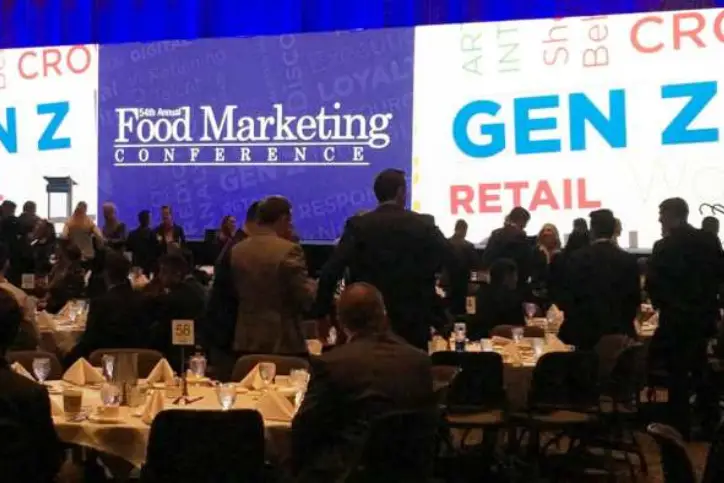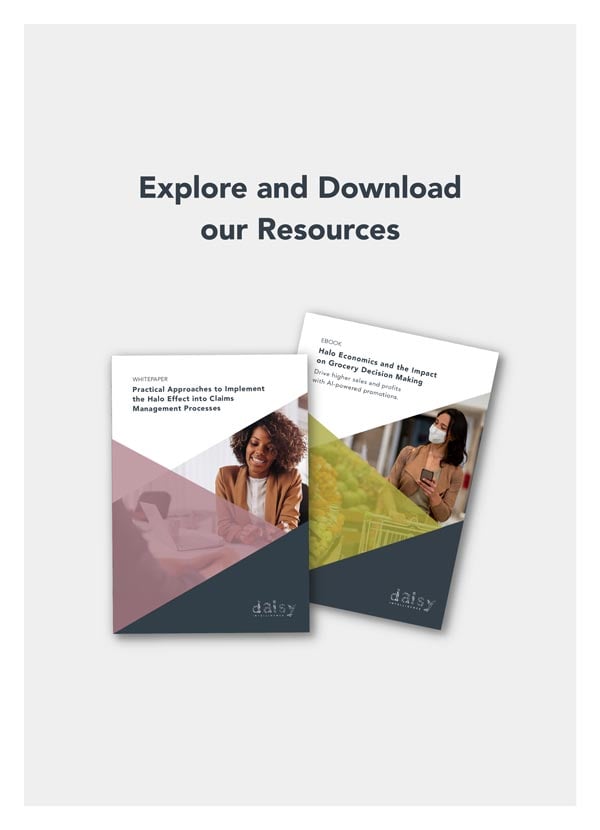
SpartanNash Puts Spotlight on Promotion Planning with AI
 Daisy Intelligence
Daisy Intelligence
With a job placement rate of nearly 100% and an alumnus that makes up a Who’s Who of retail and CPG leaders, it’s safe to say the future of the grocery sector has often started at Western Michigan University.
It is not a surprise that one of the most important conversations about merchandising and promotions took place last month at WMU’s 54th annual Food Marketing Conference.
Run by students of WMU’s Food and Consumer Packaged Goods Marketing program, the conference touched upon many of the industry's most disruptive trends from the rise of Generation Z and the gig economy to digital shopping habits and facial recognition technology.
For many attendees, however, the insights from Joe McQuesten on how to more effectively manage promotions were some of the most actionable takeaways.
McQuesten, senior vice-president of merchandising at SpartanNash, participated in a session with Daisy founder and CEO Gary Saarenvirta about the role of artificial intelligence (AI) in merchandising decisions and strategies.
Rather than focus on technology, McQuesten talked about why more retailers are embracing AI based on reinforcement learning to change how they operate, as well as how employees do their jobs.
One of the key points was AI’s ability to automate time-consuming and manual tasks around promotion planning.
“We went through a recent time study this past fall and we understand now that are category managers spend over 50% of their time planning promotions,” McQuesten said.
“They should also be leading strategically but they also have a lot of other tasks that happen. So, the most important part of the business -- being innovative, being strategic, (overseeing) the overall customer solution -- was being negated by all the time spent on promotion.”
This shouldn’t be a surprise, McQuesten added, because, at many retailers and wholesalers, the processes to continually improve merchandising has plateaued.
“We would plan a promotion because somebody thought it was going to do a really good job for us. We would look at previous promotions and forecast sales,” he said, giving the example of trying to move 100 cases of a particular product. “As we got more sophisticated, the tools got more sophisticated. We got as far as ‘Does the category grow?’ Then, we kind of stopped.”
Good-Bye to Gut Instinct on Its Own
For McQuesten, the potential of AI based on reinforcement learning lies in moving away from a gut instinct approach to planning and promotions and getting real answers to some of the most burning questions. He put the spotlight on three key questions that likely resonate with many industry executives:
- Did our merchandising decisions bring people to the store?
- Did they lead to more sales for the category?
- What’s the degree of cannibalization with other products?
The WMU Food Marketing Conference session was also a good reminder of how grocers can take a pragmatic approach to getting started with AI.
SpartanNash, which operates more than 155 corporate-owned retail stores and distributes to more than 2,100 independent locations in the U.S., is in the midst of a three-phase testing cycle that will involve exploring data-driven insights, trying out recommendations, and optimizing based on what the team learns.
“We're going to go from zero to a hundred in nine months,” he said. “It is a very accelerated time period to take us from the way we have planned promotions for our entire careers to an entirely new and revolutionized way to optimize promotions for sales efficiencies and profits.”
“Ultimately, I would argue this is the definition of consumer centricity. This is not about what anybody wants. This is how [customers] shop, when they want it, and how they're going to buy. This is a quantum leap forward.”
More: In this blog post, we provide insight into reinforcement learning and how it allows businesses to leverage the power of AI.
To learn more about, how Daisy’s AI-powered technology helps retailers and insurance companies drive higher profits and revenue, drop us a note.




